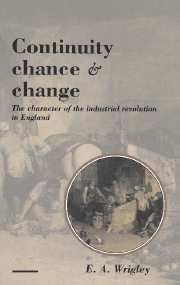3 - The mineral-based energy economy
Published online by Cambridge University Press: 05 June 2012
Summary
The strident note of indignation about the condition of the working classes so audible in the writing of Karl Marx reflected a real change in economic circumstances over the preceding half-century. It was not that the lot of the average wage earner had deteriorated in recent decades; it may well have improved. It was rather that by the 1860s it was plain that the productive capacity of society had grown greatly and could be expected to rise much further; the era of exponential growth had dawned but it was uncertain whether all members of society, or only a restricted class of people, would benefit from the change. When Malthus had engaged in his prolonged controversy with Godwin two generations earlier he had been able to argue with conviction that while Godwin might hypothesize that general economic well-being and adequate leisure for recreation were attainable goals, both empirical evidence and theoretical considerations suggested that a life of physical toil and intermittent hardship was almost inevitable. In Marx's day the capacity to produce was visibly growing by leaps and bounds and it no longer seemed Utopian to suppose that human toil could be abbreviated and yet production might be expanded to match human need. Sometime during the first two-thirds of the nineteenth century Malthus's tortoise acquired an unprecedented speed and stamina.
The arithmetic requirements for a substantial and sustained rise in real income per head were straightforward.
- Type
- Chapter
- Information
- Continuity, Chance and ChangeThe Character of the Industrial Revolution in England, pp. 68 - 97Publisher: Cambridge University PressPrint publication year: 1988



